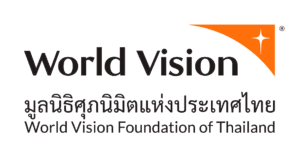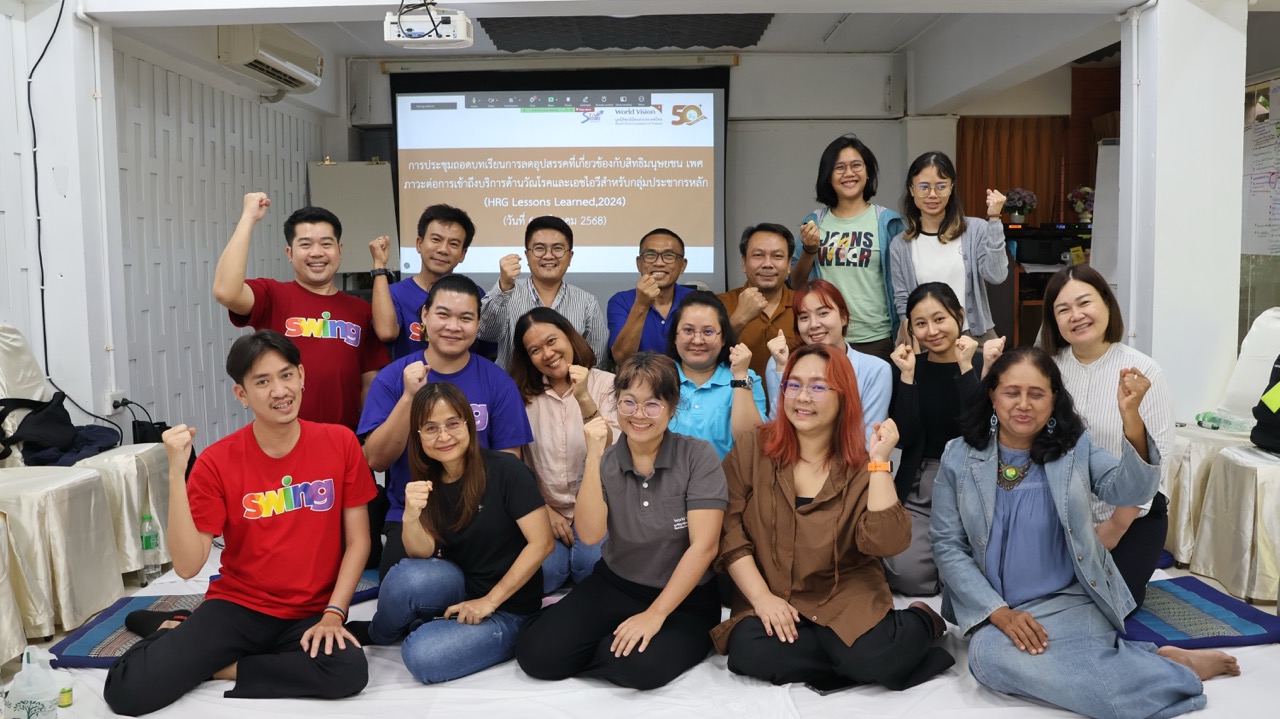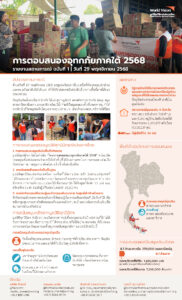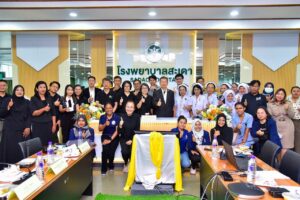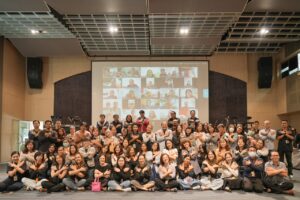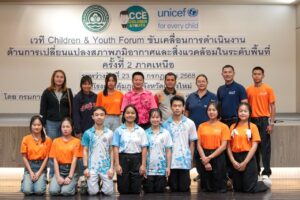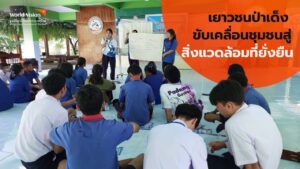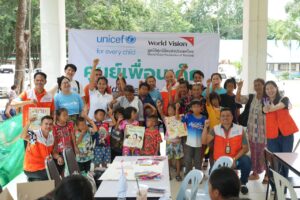การตีตราและการเลือกปฏิบัติ อุปสรรคสำคัญในการเข้าถึงบริการสุขภาพที่ยังคงอยู่ โดยเฉพาะในเรื่องของโรคเอดส์/เอชไอวีและวัณโรคในทุกกลุ่มประชากร ซึ่งทำให้ผู้คนลังเล ไม่กล้าหรือไม่สามารถเข้ารับการรักษาที่จำเป็นได้ทันท่วงที ความล่าช้าต่อการเข้าสู่การวินิจฉัยและกระบวนการรักษา ย่อมเพิ่มความเสี่ยงในการแพร่ระบาดของโรค ดังนั้น การตีตราทางสังคมและการตีตราภายใน (self-stigma) ด้านเอชไอวีและวัณโรคของกลุ่มประชากรหลักที่มีอัตราสูงมาก ยังเป็นอุปสรรคต่อการเข้าถึงบริการด้านสุขภาพ และเพื่อเป้าหมายการพัฒนาสุขภาพจิตของผู้รับบริการ ซึ่งสะท้อนถึงความจำเป็นในการแก้ไขทัศนคติของสังคมเพื่อให้เกิดการยอมรับและเข้าใจในสิทธิของผู้ป่วย รวมถึงการส่งเสริมให้ทุกคนได้รับการปฏิบัติอย่างเท่าเทียมและไม่ถูกเลือกปฏิบัติจากปัจจัยต่าง ๆ เช่น สถานะทางสังคม เพศ ศาสนา หรือสัญชาติ เป็นต้น
จากรายงานดัชนีการตีตราผู้อยู่ร่วมกับเอชไอวีในประเทศไทย 2.0 (ปี 2565-2566) พบว่า 5% ของผู้ร่วมให้ข้อมูลเคยประสบกับการตีตราในชุมชน โดยเฉพาะในกลุ่มพนักงานบริการ ผู้ใช้สารเสพติด และบุคคลข้ามเพศ ซึ่งการถูกตีตรามีผลต่อการหยุดการรักษาด้วยยาต้านไวรัส โดยกลุ่มที่เคยถูกตีตรามีแนวโน้มหยุดการรักษาสูงกว่าผู้ที่ไม่เคยประสบกับการตีตราอย่างมาก การตีตรายังส่งผลให้เยาวชนที่มีเชื้อเอชไอวี ต้องเผชิญกับการขับไล่จากที่พัก หรือการเลื่อนการเข้าเรียน นับเป็นอุปสรรคสำคัญในการดำเนินชีวิตประจำวันและการเข้าถึงบริการต่าง ๆ ที่จำเป็น
ขณะเดียวกัน ผลการศึกษาจากรายงาน HRG Rapid Assessment พบว่า มีประชากรข้ามชาติถูกไล่ออกจากงานเนื่องจากป่วยเป็นวัณโรค นักเรียนถูกขับออกจากโรงเรียน และประชากรข้ามชาติหลายคนต้องเผชิญกับอุปสรรคในการเข้าถึงบริการทางการแพทย์ ไม่ว่าจะความแตกต่างด้านภาษา หรือการเลือกปฏิบัติจากผู้ให้บริการด้านสุขภาพ ล้วนส่งผลให้พวกเขาไม่กล้าหรือไม่สามารถเข้ารับการรักษาเมื่อเจ็บป่วยได้
จากการดำเนินงานที่ผ่านมาของมูลนิธิศุภนิมิตฯ และภาคีเครือข่าย ยังคงพบว่า การทำงานในระดับพื้นที่ยังไม่มีการนำนโยบายการคุ้มครองสิทธิในระดับชาติมาปฏิบัติ เช่น สิทธิด้านสุขภาพอนามัย การจ้างงาน และการศึกษา เป็นต้น และยังขาดกลไกการบังคับใช้ ซึ่งหากในทุกบริบทสามารถมีการบังคับใช้และคุ้มครองสิทธิทางกฎหมายผ่านกลไกต่าง ๆ เช่น ร่างพระราชบัญญัติต่อต้านการเลือกปฏิบัติในทุกรูปแบบที่ได้เสนอขึ้นมา จะก่อให้เกิดการเปลี่ยนแปลงที่เป็นรูปธรรมอย่างแท้จริง รวมถึงการเข้าถึงสิทธิพื้นฐานอื่น ๆ ซึ่งเป็นปัจจัยสำคัญที่ส่งผลต่อการพัฒนาคุณภาพชีวิต โดยเฉพาะความตระหนักในความยุติธรรมทางสุขภาพ
ด้วยเหตุนี้ ในเดือนมีนาคมที่ผ่านมา มูลนิธิศุภนิมิตฯ ผู้รับทุนหลักจากกองทุนโลกภายใต้โครงการยุติปัญหาวัณโรคและเอดส์ด้วยชุดบริการ RRTTPR ปี 2567-2569 ได้จัดประชุมถอดบทเรียนการลดอุปสรรคที่เกี่ยวข้องกับสิทธิมนุษยชนและเพศภาวะต่อการเข้าถึงบริการด้านวัณโรคและเอชไอวีสำหรับกลุ่มประชากรหลัก โดยมีจุดมุ่งหมายเพื่อทบทวนการดำเนินงานที่ผ่านมา และพัฒนากลยุทธ์การดำเนินงานด้านสิทธิมนุษยชนและเพศภาวะ (Human Rights and Gender – HRG) เพื่อสนับสนุนแผนยุทธศาสตร์แห่งชาติในการยุติปัญหาเอดส์ ปี 2560-2573 และแผนปฏิบัติการระดับชาติด้านการต่อต้านวัณโรค ระยะที่ 2 (ปี 2566-2570) โดยมุ่งเน้นการเชื่อมโยงกับการลดอุปสรรคในการเข้าถึงบริการสุขภาพและการขจัดการตีตราและการเลือกปฏิบัติในทุกมิติ ทั้งในระดับนโยบายและระดับพื้นที่ ซึ่งส่งผลกระทบโดยตรงต่อการเข้าถึงการวินิจฉัยโรคและรักษาอย่างเท่าเทียม
ในการประชุมครั้งนี้ มีภาคีเครือข่ายด้านสิทธิมนุษยชนและเพศภาวะ ได้แก่ มูลนิธิรักษ์ไทย มูลนิธิดรีมลอปเม้นท์ มูลนิธิเพื่อสิทธิความหลากหลาย มูลนิธิเพื่อนพนักงานบริการ และคณะกรรมการกลไกความร่วมมือในประเทศ ร่วมแลกเปลี่ยนความคิดเห็นและประสบการณ์ รวมถึงแผนการดำเนินงานที่มุ่งเพิ่มประสิทธิภาพในการตอบสนองต่อความต้องการของกลุ่มประชากรข้ามชาติ โดยเฉพาะในด้านการเข้าถึงบริการด้านวัณโรคและเอชไอวี/เอดส์
ข้อเสนอหลักจากผลการดำเนินงานปี 2567 คือ การบูรณาการงานด้านสิทธิมนุษยชนและเพศภาวะเข้ามาเป็นส่วนหนึ่งของการให้บริการทังในองค์กรชุมชนและสถานให้บริการของภาครัฐ ซึ่งรวมทั้งมาตรการลดการตีตราและการเลือกปฏิบัติให้เกิดขึ้นในทุกขั้นตอนของ RRTTPR (Reach – Recruit – Test – Treat – Prevention – Retain) นอกจากนี้ ควรมีการปฏิรูปกฎหมายอาญาเกี่ยวกับการลดอันตรายจากการใช้ยาเสพติด และการรับรองอาชีพพนักงานบริการให้ถูกกฎหมาย รวมถึงนโยบายต่าง ๆ ที่ส่งผลเสียต่อการทำงานเพื่อช่วยลดภาระให้องค์กรชุมชนในพื้นที่ และชุมชนควรได้รับความช่วยเหลือทางกฎหมายเพื่อให้เข้าถึงกระบวนการยุติธรรมผ่านการบังคับใช้กฎหมาย หากทำทุกอย่างนี้ครบถ้วน จะช่วยให้ผู้รับบริการทั้งผู้อยู่ร่วมกับเอชไอวีและกลุ่มประชากรหลัก สามารถเข้าถึงการบริการที่ดี มีผลการรักษาที่เหมาะสม และมีคุณภาพชีวิตที่ดีขึ้นได้ ภายใต้การดำเนินงานโดยมูลนิธิศุภนิมิตฯ และภาคีเครือข่าย ซึ่งแสดงให้เห็นถึงความพยายามอย่างเป็นระบบในการขจัดอุปสรรคในการเข้าถึงบริการสุขภาพอย่างเท่าเทียม เช่น
- โครงการ M-FUND ภายใต้การดำเนินงานของมูลนิธิดรีมลอปเม้นท์ มีบทบาทสำคัญในการขยายหลักประกันสุขภาพให้แก่ประชากรข้ามชาติที่ไม่มีเอกสารอย่างไม่เลือกปฏิบัติ ในปี 2567 มีผู้ลงทะเบียนใหม่จำนวน 17,420 คน ส่งผลให้ยอดสะสมทั้งหมดอยู่ที่ 89,205 คน โดยในจำนวนนี้ 30,106 คน ได้รับบริการจากโรงพยาบาลคู่สัญญา
- ด้านการตอบสนองภาวะวิกฤต ภายใต้การดำเนินงานของมูลนิธิเพื่อสิทธิความหลากหลาย และมูลนิธิเพื่อนพนักงานบริการ ทำงานเชิงนโยบายเรื่องการลดทอนความเป็นอาชญากรรมของพนักงานบริการ และมีการเสริมสร้างระบบเฝ้าระวัง (Watch Dog) ให้มีความเข้มแข็งยิ่งขึ้น โดยจัดตั้งกลไกชุมชนในกรุงเทพฯ และชลบุรี สามารถให้ความช่วยเหลือผู้ที่ถูกละเมิดสิทธิได้จำนวน 642 ราย ครอบคลุมประเด็นต่าง ๆ เช่น การละเมิดสิทธิด้านเอชไอวี วัณโรค การใช้สารเสพติด ความรุนแรงในครอบครัว และการเลือกปฏิบัติ
- การจัดตั้งคณะทำงานศึกษาปัญหาและอุปสรรคด้านการตีตราและการเลือกปฏิบัติอันเนื่องมาจากวัณโรค สำหรับกลุ่มประชากรหลัก (TB Task Force related S&D) ซึ่งเป็นกลไกความร่วมมือระหว่างภาครัฐและภาคประชาสังคม เพื่อผลักดันการขจัดการตีตราและการเลือกปฏิบัติในการเข้าถึงบริการด้านวัณโรค ทำการประเมินผลการศึกษา TB O-9 S&D ในระดับชุบชนที่กำลังศึกษาข้อมูลเชิงลึกที่นำไปสู่การปรับปรุงนโยบายและแนวทางปฏิบัติระดับชาติ
- การจัดทำแผนปฏิบัติการต้นทุนแห่งชาติของ TB-CRG (Costed Action Plan) เพื่อให้แน่ใจว่ามีการจัดสรรทรัพยากรที่เหมาะสมในการลดการตีตราและการเลือกปฏิบัติ
- การประเมินตัวชี้วัดสำคัญเพื่อติดตามความก้าวหน้าในการขยายขอบเขตของโครงการที่มุ่งขจัดอุปสรรคด้านสิทธิมนุษยชน พร้อมทั้งรายงานผลการดำเนินงานต่อกองทุนโลกอย่างต่อเนื่อง
การสนับสนุนสิทธิมนุษยชนของกลุ่มประชากรหลักเป็นสิ่งสำคัญ เพราะการตีตราและการเลือกปฏิบัติไม่ได้เกิดจากความกลัวการติดเชื้อเอชไอวีหรือวัณโรคเท่านั้น แต่ยังเกิดจากการตีตรากลุ่มประชากรหลักอีกด้วย การแก้ไขปัญหานี้จึงต้องอาศัยความร่วมมือจากทุกภาคส่วนในการลดอุปสรรคและส่งเสริมความเท่าเทียมในการเข้าถึงบริการสุขภาพ เพื่อให้ทุกคนได้รับการดูแลที่เหมาะสมและมีสิทธิในการเข้าถึงบริการสุขภาพอย่างเท่าเทียมกัน
แม้จะมีความก้าวหน้าในการขับเคลื่อนการขจัดการตีตราและการเลือกปฏิบัติต่อผู้ที่สงสัยว่าป่วยเป็นวัณโรคและผู้อยู่ร่วมกับเอชไอวี แต่ยังคงเผชิญข้อจำกัดและความท้าทายหลายประการ เช่น ความไม่ต่อเนื่องของโครงการ การเปลี่ยนแปลงทางการเมือง ข้อจำกัดด้านการจัดเก็บข้อมูลเชิงนโยบาย ตลอดจนความตระหนักรู้และทัศนคติของสังคม ล้วนเป็นอุปสรรคต่อการเข้าถึงบริการด้านวัณโรคและเอชไอวีสำหรับกลุ่มประชากรหลัก นอกจากนี้ยังอาจส่งผลกระทบต่อการที่ประเทศไทยจะบรรลุเป้าหมายในการยุติปัญหาวัณโรคและเอดส์ภายในปี 2573 ได้
